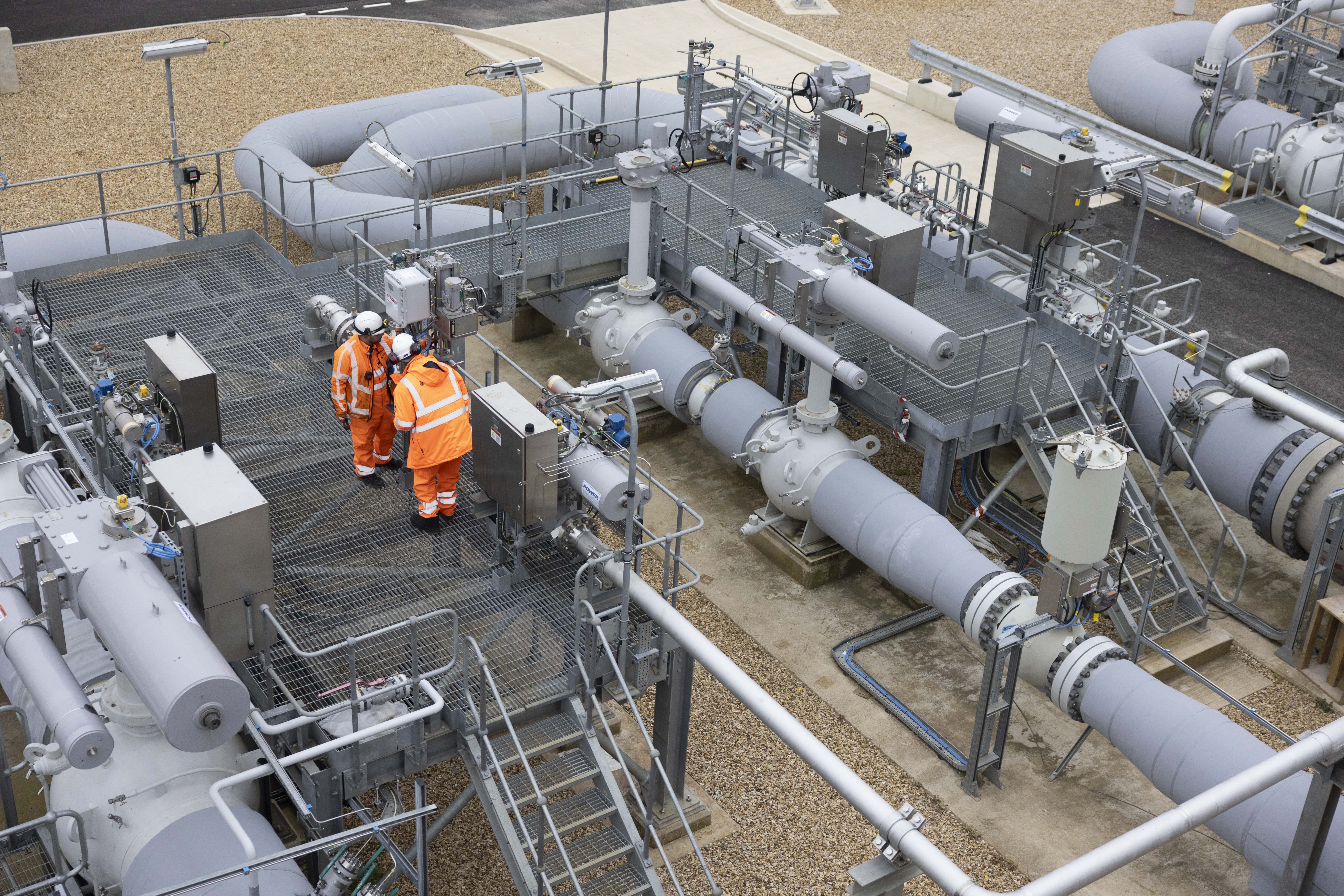Our network and assets
Planning and development
National Gas provides gas-related guidance to local planning authorities and other statutory consultees in relation to planning and development applications. We also comply with various planning systems in relation to locating, installing and removing equipment associated with our high-pressure gas transmission network.
National Gas is regularly consulted on planning and development issues of local, regional and national importance. We enjoy open and constructive dialogue with many planning authorities and interested parties. We are always keen for these parties to approach us as soon as possible if they have a land use or planning issue to discuss.

Development Plan Document consultations
To ensure that our existing sites and equipment continue to operate safely and to facilitate future infrastructure investment, we are keen to be involved in preparing, altering and reviewing any plans and strategies that may affect our equipment.
We have appointed Avison Young to review and respond to planning authority Development Plan Document consultations on our behalf. We ask that planning authorities consult us on any Development Plan Document or site-specific proposals that could affect our infrastructure by emailing Avison Young at [email protected]
Nationally Significant Infrastructure Projects
In England and Wales, certain types of energy infrastructure are categorised as Nationally Significant Infrastructure Projects (NSIPs), which require a Development Consent Order (DCO) under the Planning Act 2008. For National Gas Transmission, new pipelines may be classed as NSIPs if certain thresholds are met. Applications for DCOs are submitted to the Planning Inspectorate and determined by the Secretary of State for Energy Security and Net Zero.
Where we carry out gas works to connect a new energy customer, and their project is a NSIP, it may be possible for our network reinforcements to form part of the customer’s DCO application.
Some types of new gas infrastructure may require planning permission from local planning authorities. These can include new compressor stations, pressure-reduction installations, block valves and other above-ground installations on our gas network.
Major extensions to sites like these, together with temporary construction access onto classified roads, may need planning permission. Where such works are required in connection with a proposed NSIP, it may be possible to incorporate them into the Development Consent Order (DCO) application as “associated development”.
New or modified access onto classified roads, temporary or permanent culverts, outfalls and other drainage works may also require planning permission from the local authority.
Permitted development
As a statutory undertaker, National Gas benefits from permitted development rights, which enable us to carry out certain works without having to submit planning permission applications.
This includes works to existing gas sites, including the installation of plant and equipment, and installing new buildings or extensions to existing buildings, subject to limitations. Permitted development rights also allow us to install buried gas pipelines, subject to location, length and any likely significant environmental effects
Permits and licences
Where we are carrying out work in flood zones, where flood defences are affected, or where rivers and watercourses are crossed, we may require permits or licences from the Environment Agency, Scottish Environmental Protection Agency or Natural Resources Wales. Under local by-laws, approvals may be required from local drainage boards. We may also require permits in relation to the operation of gas compressor sites.
Licences may be required for works in the vicinity of protected species, and assents may be required for works within in or near to ecologically designated areas.
With the agreement of the relevant consenting bodies, permits or licences (secondary consents or approvals) may also be included in DCO applications to the Planning Inspectorate as “ancillary matters”
Offshore infrastructure
The Marine and Coastal Access Act 2009 established marine planning and licensing authorities across the UK. The Marine Management Organisation (England), Natural Resources Wales, and Marine Scotland are responsible for their respective territorial waters, including inshore (from Mean High Water to 12 nautical miles) and offshore (12 to 200 nautical miles).
A marine licence might be needed for activities carried out in or over the sea, or on or under the seabed, which can include the installation of pipelines or investigatory work, such as intrusive surveys. Depending on the nature of the proposals, there may also be overlaps with other consenting regimes, particularly where infrastructure comes ashore. Certain activities are exempt from requiring marine licences.
With the agreement of the marine authorities, permits or licences may also be included in DCO applications to the Planning Inspectorate as “ancillary matters”

